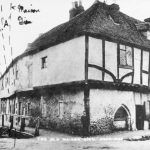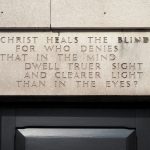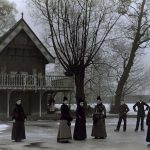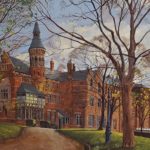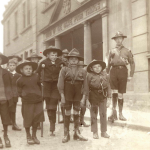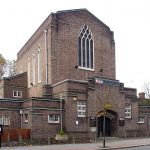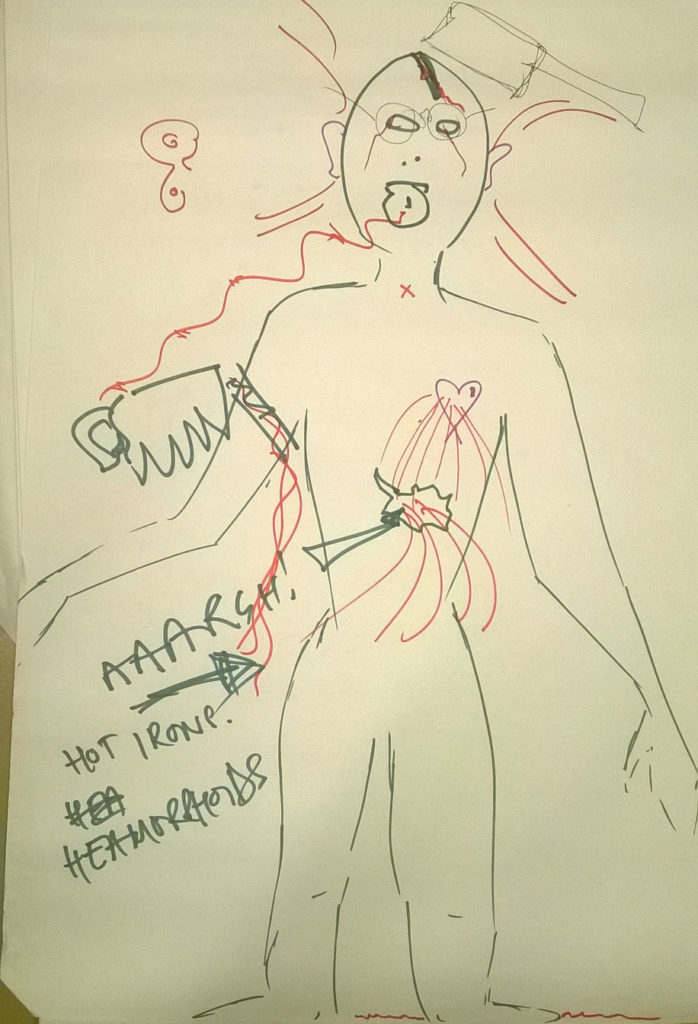One of the things we have been exploring in the History of Place project is how to turn the stories of deaf and disabled people’s lives over eight centuries into digital games, ones which are fun and informative, as well as accessible for disabled users.
Some of our previous workshops have lasted over several days with the same group, but we also wanted to invite a wider audience to have a go in 45 minute taster sessions. These took place at the Beaney House of Art and Knowledge in late October.
Maison Dieu is the earliest port of call in our history of deaf and disabled people – and is the point where ‘health’ and ‘disability’ are the most conflated. Monasteries were also places where disabled people found work, like the ‘blind daughter of Andrew of Faversham’ (whose name is not recorded) who was admitted to Maison Dieu as a ‘servant of God and a sister of the hospital’.
What we did: a crash course in medieval healthcare
At the start of the workshops our project leader Francesca began by telling participants what the research groups had discovered about medieval hospitals (which were also monasteries) in the Canterbury area – from Maison Dieu in Faversham to various other long lived institutions in Canterbury itself.
Then actor and immersive event designer John Norton led on activities which helped participants get into the mindset of gaming, medieval medicine and diagnosis and the influences of the time of astrology and astronomy.
Into the ‘dark forest of medieval beasts’
The final game will be produced early next year, but here’s a flavour of how the ideas for a digital game are constructed, and some of the ideas that came up in our taster sessions. First you need an….
Aim
… which might be to survive Medieval England, to be cured (an idea which comes with some ambivalence in the social model of disability ) or to get to Canterbury and offer something to St Thomas – possibly a fake body part, in line with the medieval custom of frequently fake relics of saints.
Then you need…
A place to start from
Perhaps you wake up in a room in Maison Dieu, not completely remembering why you or there or what happened. Have you had a fever? What trigger objects in the room could start your quest? Perhaps medical texts, a table or a jar of leeches, a chess board, an angel or a person asking for help. Then this might lead you to …
Other places in Medieval England
- A Tavern in Southwark – Tabard Inn – for a game of dice, a story, and a brawl.
- The big picture of the medieval world – an early map with concentric circles and Canterbury at the centre.
- A dark forest of Medieval beasts where you get lost – are you saved by prayer? or a religious token? or a ghost ?
- Markets
In each of these places you will need to overcome various…
Perils
such as starvation, thieves, highwaymen or being branded as a witch. The perils of medieval beliefs about health – which were strongly linked to astrology and a fondness for bloodletting as a cure all – also come up quite often. A blood-letting mini game and urine inspection were among the suggestions. The unfortunate man in the illustration above is suffering from ‘hot irons and hemorrhoids’.
Though the medieval monastery offered a place for disabled people to find work, to be admitted with secure food and shelter, and to still participate in the world, it might have been a dangerous place to be for interventionist medicine, which must quite often have made things worse.
However, medieval herbalism was a safer bet, and the story of Juliana of Wye, who set up what may have been a herbalists at Maison Dieu, was also suggested for inclusion.
What determines your fate?
Devices suggested to move the game along and determine what happened to characters on the quest include volvelles, weather, the position of the planets, dice, chance, choice, nine men’s morris or a butterfly.
These ideas show how, relatively quickly, a group of people with enough information can begin to build another world, and imagine paths through it. In the process, many of the dilemmas and opportunities of 800 years ago gain a more practical reality.
You can see what we did with the ideas from the Beaney in Spring 2018.


